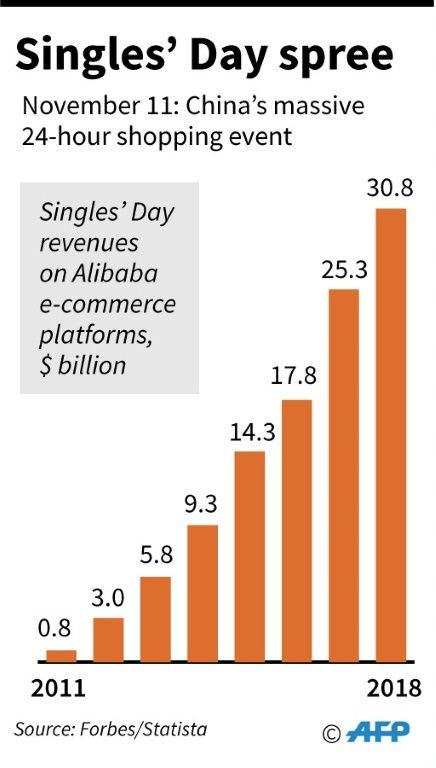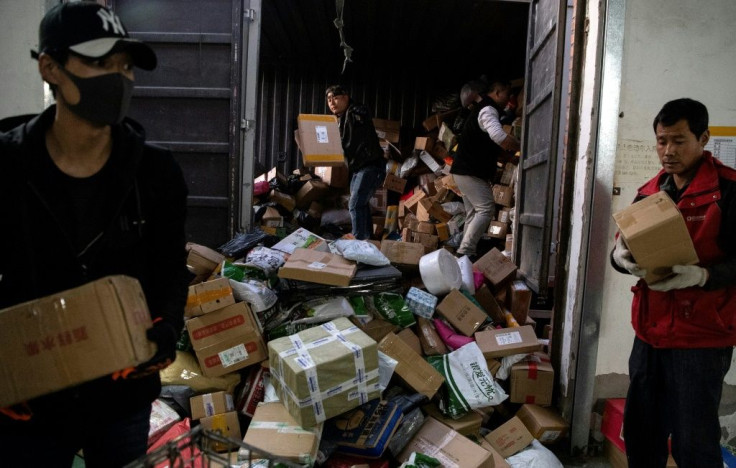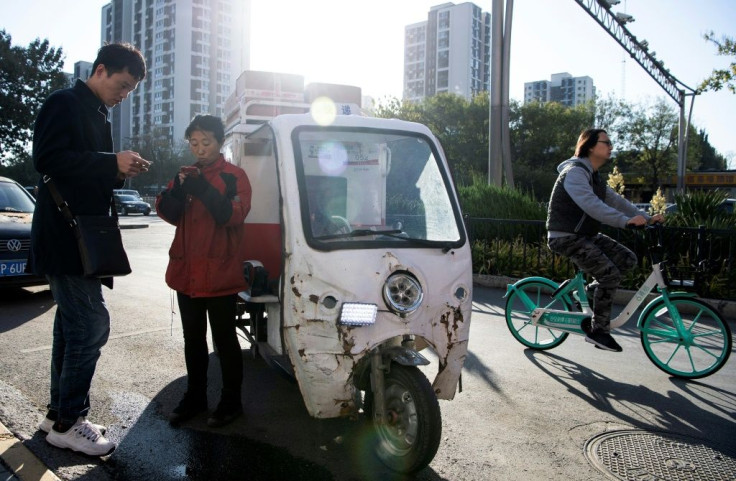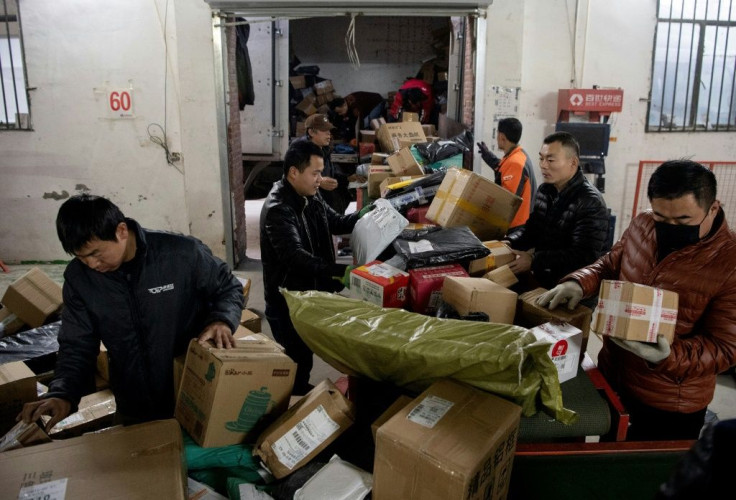What Slowdown? Chinese Shoppers Set New 'Singles' Day' Spending Record

Chinese consumers spent a record amount on Alibaba platforms Monday during the annual "Singles' Day" buying spree, the world's biggest 24-hour shopping event, which kicked off this year with a glitzy show by US singer Taylor Swift.
The country's leading e-commerce firm said that by late afternoon the amount of goods bought surpassed the previous record of $30.7 billion spent during the entire 24-hour period last year, and was still rising with several hours to go.
China's economy is in an extended slowdown exacerbated by the US trade war, and the Singles' Day fire sale is viewed as a snapshot of consumer sentiment in the world's second-biggest economy.
But there was little hint of Chinese belt-tightening, with $1 billion spent via Alibaba in just the first 68 seconds.
US President Donald Trump has repeatedly said his tariffs on Chinese goods have put the country's economy on the ropes, but the state-run tabloid Global Times said the shopping figures proved otherwise.

"It clearly speaks to the Chinese people's stronger spending power to back up the economy, despite the 17-month-long trade war & HK unrest," it said on Twitter, referring to months of pro-democracy demonstrations in Hong Kong.
The promotion, now in its 11th year, began at midnight with Chinese bargain-hunters going online to snap up everything from electronics to clothing and household goods via Alibaba and rival websites.

Alibaba kicked it off with an annual gala show in Shanghai, headlined this year by Grammy-winning pop star Swift.
Singles' Day, also called "11.11" for the November 11 date, was originally set as an unofficial day for unmarried Chinese.
But Alibaba, based in the eastern city of Hangzhou, turned it into a shopping promotion akin to the late-November US "Black Friday", which "Singles' Day" now handily surpasses.

Other Chinese online platforms and myriad retailers have since tapped in.
Alibaba competitor JD.com, which holds an 11-day promotion ending at midnight on November 11, said total sales so far had reached $25.6 billion as of Monday afternoon, beating the $22.4 billion spent over the full 11-day stretch last year.

Despite sobering economic data over the past year, China retail sales have remained a relatively bright spot, facilitated by e-commerce and one-click smartphone payments.
"Over the years, we've seen consumers become more diverse and younger," Alibaba chairman Daniel Zhang said in comments released by the company, describing the continued robust Singles' Day performance.
China is also transitioning to an economic model increasingly driven by domestic consumption and away from a past over-reliance on manufacturing.
E-commerce sales have expanded thanks to the growing diversity of products available to Chinese shoppers and as consumers increasingly seek better-quality, higher-priced goods, analysts say.
"Consumption has already become an important portion of the economy. Digitalisation has facilitated this trend as it makes consumption more convenient and efficient than ever before," Raymond Ma, portfolio manager with Fidelity Investments, said in a research note.
Alibaba accounts for more than half of China's e-commerce market. It hits new Singles' Day records each year, but the pace of growth has slowed.
The US-listed company earlier this month said revenue in the most recent quarter slowed to 40 percent, from 54 percent in the same quarter last year.
This is Alibaba's first Singles' Day without Jack Ma, who stepped aside as chairman in September.
Ma co-founded Alibaba in his Hangzhou apartment 20 years ago. It is now among the world's most valuable companies.
Alibaba is hoping to raise up to $15 billion in a Hong Kong IPO, a report said last week, which would be the city's biggest listing for nine years.
Environmentalists accuse Alibaba and other online retailers of fuelling a culture of excessive consumption and adding to a growing national garbage crisis by producing mountains of discarded packaging.
dma/gle
© Copyright AFP {{Year}}. All rights reserved.





















